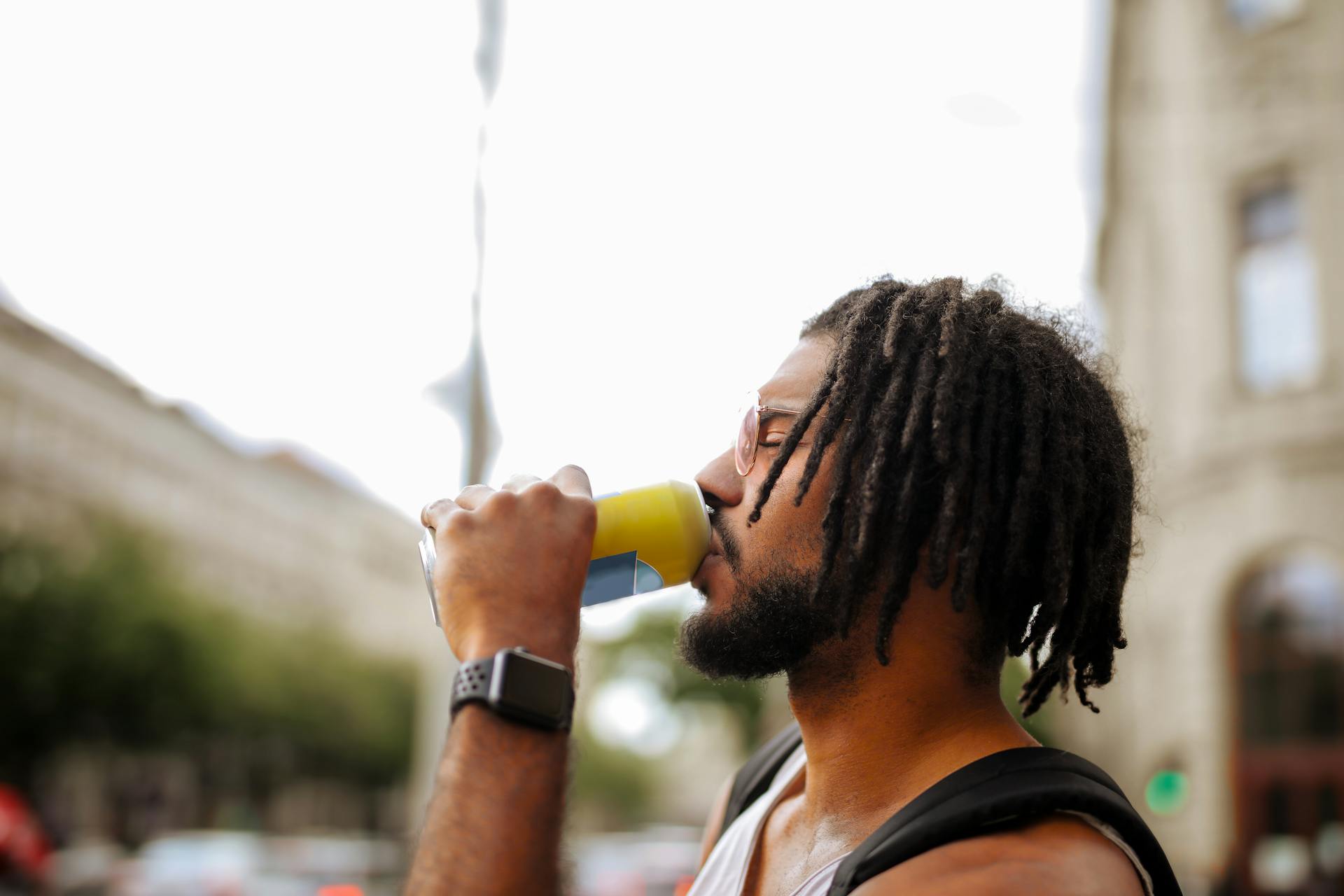
The answer to the question ‘Can you swim after laser hair removal?’ is an unequivocal yes - with a couple of caveats. Swimming after laser hair removal can be beneficial for the process of healing, but precautions should be taken to make sure your body is fully rested after treatment and that you don’t expose yourself to any unnecessary harm in the pool.
Laser hair removal raises hairs away from their follicles, leaving skin raw and tender. Swimming after your treatment can act as a type of physical therapy for your skin, helping it heal faster. However, due to the chlorine in public pools, it is important to wait three days after treatment before taking a dip. Not only can chlorine contact further irritate your skin, but some products used in the water can also have potential negative effects on your laser-treated areas. The same applies to hot tubs denatured with Clorox; they should be avoided altogether during healing time.
On the other hand, if you choose private swimming or chlorinated pools or saltwater options like seawater or natural swimming spots such as lakes and rivers, these are generally safe once well-rested post-treatment. In addition to promoting skin healing, swimming is also an excellent form of exercise during recovery time; it’s low impact so not puts any strain on your body yet it still promotes blood flow. If you’re looking for ways to keep yourself active while recovering from laser hair removal opt for a swim rather than more strenuous methods like running or jumping rope!
Ultimately, ask your practitioner whether swimming post-laser is appropriate for you – considering factors like past treatments and individual skin sensitivity – then stick close to natural (non-chlorinated) waters when possible and offload any heavy exercise routines until your body has properly healed from its session in the clinic.
You might like: Hair Dry
Are there any activities I should avoid after laser hair removal?
Laser hair removal is a fast and convenient way of permanently reducing unwanted hair from the body. But after the treatment, it is important to be aware of activities that should be avoided to ensure successful results without any potential risks or side effects. Here are some activities that you need to avoid after laser hair removal:
First, swim in any water body should be avoided at least two weeks after the procedure. Simply put, it includes pools, hot tubs, lakes, rivers and oceans. Getting wet will increase your risk of infection and the chlorine and other chemicals in pools can irritate or delay the healing process.
Second, direct sunlight or tanning beds should be avoided as much as possible during healing period post laser hair removal. This includes exposing your skin to any ultraviolet rays like those present in artificial tanning beds. Doing so may cause irritation and inflammation on the area where treatment was done which can delay the healing process and may also even cause permanent pigmentation changes on treated area.
Finally, vigorous physical activities should be avoided for at least 24 hours after treatment as this could cause an increase in temperature which can result in redness on skin along with swelling over treated area. Moreover, such activities also encourage sweating at a time when protecting your skin from bacteria is crucial for faster recovery post laser hair removal procedure without damaging any new cells under development interface by warming them gradually over time for a better aesthetic outcome with lasting results.
Expand your knowledge: Increase Arm Strength
Is there any downtime required following treatment?
For many people, the idea of taking a break from their everyday lives to allocate significant time to healing is a difficult concept to grasp. There is often an ingrained desire to push onward and get back to life as it was before whatever necessitated treatment began. But downtime following treatment - whether traditional or alternative - is a vital element in the healing process.
Recovery time following treatment varies based on the condition and recommended course of action. Generally speaking, some form of rest and relaxation should be adopted after relatively minor treatments, such as massage or acupuncture, while more complex surgeries may require extended periods ‘off your feet’ and engaging in low-key activities appropriate for your recovery. It is important that you follow your doctor’s orders in terms of recovery period and activity levels; pushing yourself too hard can have long term negative impacts that may impede your recovery.
There are some points to consider when wanting determine an approximate timeline for returning to normal activity: Is the treatment preventive or reactive? Are there any physical constraints? Is there any emotional stress that needs tending? Is lifestyle modification necessary? Remember, it is important to listen to your body after undergoing any kind of treatment and exercise common sense when returning to usual activities - no matter how eager you may be!
A different take: Who to Call When You Run Out of Gas?
Can I go swimming immediately after laser hair removal?
Swimming immediately after laser hair removal is possible, but it is not recommended. The laser treatment leaves the skin hypersensitive and exposed to potential damage from the chemicals commonly found in swimming pools, as well as chlorine. This can cause further irritation and even long-term discoloration of the skin if precautionary measures are not taken. The best advice is to wait two days after laser treatment before you go for a swim in a chlorinated pool, as this gives your skin enough time to adjust and heal from the laser procedure.
When swimming post-treatment, it is important to take some extra steps to protect your skin. Wear protective clothing such as rash guards or t-shirts with long sleeves while you swim, and then take a shower immediately afterward with lukewarm water. Do not use regular soap on the treated area but instead opt for a product specifically designed for sensitive skin — this will help avoid further irritation or breakdown of the skin. Additionally, adding fragrance-free moisturizers post-shower can help combat any dryness or burning along with aloe vera gel which is highly beneficial post-laser hair removal sessions.
Easing back into swimming after laser treatment takes time, care, and patience — but eventually your body will adjust and be ready for activity like swimming in no time! By following these best practices for taking care of your skin post Laser Hair Removal treatments, you can continue enjoying your favorite hobbies without interruption.
Broaden your view: How Long Can You Swim after You Shock the Pool?
Can I swim in chlorinated water following the procedure?
Swimming in chlorinated water is a great way to stay cool, socialize with friends and/or spend quality time with your family. However, there are some potential risks and considerations that need to be addressed prior to entering the water. Therefore, the short answer to the question “Can I swim in chlorinated water following procedure?” is yes, but only when certain criteria are met.
Chlorination of pool water is done for the purpose of killing bacteria and other microbes that could otherwise cause infection or sickness. While chlorine will kill these pathogens, prolonged exposure to high levels can also be harmful. Therefore, it is important that swimmers check chlorine levels before each visit, as well as after a storm or heavy rainfall which may decrease levels significantly. To ensure chlorine is at safe concentrations it is advisable to check with your local authority who will likely have guidelines in place to protect public health.
Another factor to consider when swimming in chlorinated water is your physical health and skin condition. Individuals who suffer from allergies or skin conditions can be especially sensitive to the chemicals used in pool sanitation and should take extra care when doing so. Lastly, it is important to remember that clothing can act as a filter for chemicals and toxins making bathing suits more absorbent than if simply wearing regular clothing into the pool itself. Therefore it’s best practice for swimmers (especially frequent swimmers) to limit contact with their fragile skin by keeping their bodies covered while swimming in chlorinated waters.
All in all it answers your questions “Can I swim in chlorinated water following procedure?” Yes you most certainly can swim in chlorinated water; however like with any aquatic activity there are some risks involved so please ensure you adhere guidelines outlined by your local authorities prior doing so.
Intriguing read: What to Wear When Running in Rain?
Is it safe to swim outdoors after laser hair removal?
Swimming outdoors can be a great way to enjoy the summer months, but for some people, it's important to make sure that swimming is safe after undergoing laser hair removal. Laser hair removal involves using laser technology to remove unwanted body hair. It's a common procedure that can help reduce or even remove body hair, but it can also make you susceptible to bacterial and fungal infections if not done correctly.
When it comes to swimming outdoors after laser hair removal, it's important to keep in mind that individual risks vary significantly. Having said that, the general consensus is that you should wait around two weeks before going for a swim after getting laser treatments. This is due in part because the treated area needs time for your skin to recover and heal propery from the treatment itself, as well as from any sun exposure you may have had during or shortly after being treated. To ensure safety and minimize your risk of infection, you should wear protective clothing such as a swim cap and goggles while swimming (tip: wetting suits are also great protection). Additionally, make sure the pool is clean and regularly maintained with proper chemicals so as to avoid any nasty bacteria or bugs.
For those who prefer ocean swimming over pool swimming, salt water can provide natural antibacterial benefits due to its salt content; however it's important not to let too much of the salty water directly contact your freshly-treated skin as too much salt might dry out your skin too quickly and leave you open to potential infection risks. In this case we recommend either wearing a full body wetsuit or rash guard when entering the beach and taking regular dips in fresh water showers where possible afterwards.
All things considered, if done following these precautionary steps there shouldn't be any reason why you cannot safely enjoy swimming outdoors following laser hair removal!
Discover more: Mile Swimming
Is there anything I should do to protect my skin after laser hair removal?
Laser hair removal is a popular and safe cosmetic procedure. Many people opt to use this method because it eliminates the need for daily shaving or waxing and can last up to six months without having to repeat the treatment. But it’s important to remember that laser hair removal uses light to remove unwanted hair, and this means your skin will be exposed to heat and possible irritation. To make sure you’re getting the results you expect and keeping your skin safe, there are some things you should do after your laser hair removal treatments.
First, keep your skin protected from direct sunlight if you plan on going outside in the days following your treatment. Intense UV rays can further damage your already fragile skin, so apply a sunscreen with at least an SPF of 30 when planning outdoor activities. Additionally, staying away from saunas, pools, and other hot places right after laser hair removal will also help protect your skin as these environments can be too harsh on recently lasered skin.
It’s also important that you stay moisturized after treatment. When using lasers for permanent hair removal, the heat damages not only the follicles but also damages your skin’s conditioning barrier. Keeping your skin hydrated with a quality moisturizer will help accelerate healing time and reduce any itching or redness caused by the treatment. This also goes for all parts of your body including any areas where laser was used to remove body or facial hair; even small areas like around the eyes can become dry post-treatment so don’t forget about them!
By taking appropriate precautions post-laser hair removal you can ensure that your treatments go as expected while protecting yourself against any irritation or further damage due to sun exposure or lack of hydration. Following these steps is an easy way to guarantee not only great results but also healthy and beautiful looking skin too!
Recommended read: Remove Basketball Hoop
Featured Images: pexels.com


